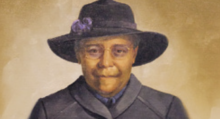
Story by Adventist HealthCare staff
Adventist HealthCare has been named one of Newsweek’s Most Trustworthy Companies in America 2024. The list of 700 U.S. companies was announced March 27 after an analysis by Newsweek and Statista Inc., the world-leading statistics portal and industry ranking provider.
Adventist HealthCare was among only 10 hospitals and healthcare systems in the U.S. to receive this prestigious recognition.





